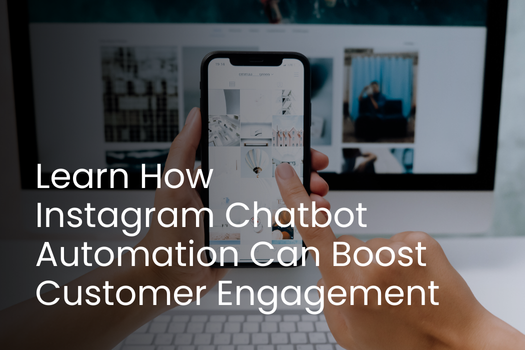Contents
- How to plan your SaaS Startup Marketing Budget?
- How To Develop a SaaS Marketing Plan?
- 9 Strategies for Your SaaS Startup
- 2. SaaS PPC Campaigns
- 3. Offer More Free Trials
- 4. Make Sign-ups Easy
- 5. Smart CTAs
- 6. Social Media Strategies
- 7. Content Marketing
- 8. Account-based SaaS Marketing
- 9. Referral Marketing
- Conclusion
Strategic marketing is the linchpin for achieving business growth in the fiercely competitive Software as a Service (SaaS) industry. With the global SaaS market projected to reach US$ 374.50 billion by 2028, it has become imperative to carve out a distinct presence in the market and communicate the value of your offerings effectively. Without strong marketing in a SaaS startup with a dedicated saas startup budget, your business may remain undiscovered or, worse, overlooked by your ideal customers.
Startup SaaS marketing strategy is your blueprint, planning a well-defined path for reaching your target audience and achieving your marketing objectives. It encompasses the tactics and techniques required to attract and engage customers for your cloud-based software. It's not just about attracting leads; it's about fostering trust, refining your value proposition, and standing out amidst competition. The typical yearly churn rate within the SaaS industry falls in the range of 5% to 7%. An effective marketing strategy is a growth catalyst and a means to reduce customer churn rates.
Now, equipped with better knowledge of SaaS growth strategies, it's time to take proactive steps. Making a plan that translates into real, measurable results is the next logical step on your journey toward thriving in the SaaS market in 2025 and beyond.
How to plan your SaaS Startup Marketing Budget?
Developing an effective SaaS marketing budget necessitates a specific plan for the dynamic Software as a Service (SaaS) business. B2B SaaS businesses typically dedicate around 9% of yearly recurring income to marketing budget, highlighting the symbiotic link between sales and marketing expenditures, which frequently comprise 31% of total revenue. Startups in pre-Series B may invest 15-20% of their gross sales to obtain market exposure.
Following Series B, this proportion rises to 6-12%, finding a balance between growth and optimization. Strategically aligning with industry benchmarks, the formulation of a comprehensive budget involves considerations such as annual recurring revenue (ARR), recurring revenue, monthly revenue, and monthly recurring revenue (MRR). To achieve growth objectives, a nuanced approach integrates social media expenditure into the budgeting process. Employing a reverse-engineering methodology, which takes into account customer acquisition cost (CAC) and customer lifetime value (LTV), ensures a balanced and informed financial strategy. This methodology not only allows for the optimization of resource allocation but also facilitates sustainable revenue growth. By incorporating key metrics like ARR, recurring revenue, monthly revenue, and MRR, businesses can adapt dynamically to market trends, fostering financial resilience and strategic agility in pursuit of long-term success.
Monthly Recurring Revenue (MRR) in the SAAS Marketing Budget for Startups
Monthly Recurring Revenue is an important measure in the SAAS business, especially for companies planning marketing expenditures. Understanding and predicting MRR helps entrepreneurs assess the reliability of their income streams, allowing for more informed budget allocation. Tracking MRR enables adaptation, ensuring that marketing activities are consistent with subscription-based revenue models. For startups, prioritising scalable growth and client retention is critical, and MRR acts as a guidepost for these efforts.
Marketing efforts in the SAAS marketing budget for startups:
In the changing SAAS industry, efficient marketing activities are critical to startup success. Allocating resources for smart marketing, content production, and client acquisition is essential. Startups must use digital platforms, social media, and customised content to raise brand awareness and attract new customers. Creating a flexible budget that allows for experimentation and adaptability is essential. Successful SAAS marketing initiatives focus on client engagement and retention, which contributes to long-term revenue development.

Marketing for criminal defense attorney
How To Develop a SaaS Marketing Plan?
Prior to embracing a strategy tailored to your needs, gaining insight into various business facets proves crucial. Delve into the intricacies of Saas budget planning by understanding key components such as the annual marketing budget, marketing costs, and expenses. This proactive approach allows a comprehensive overview of resources allocated to marketing activities, facilitating the selection of optimal marketing tactics. With a strategic understanding of Saas budget planning, businesses can align their financial resources with targeted marketing goals, ensuring an efficient allocation that maximizes the impact of marketing effort.
In this dynamic landscape, the ability to comprehend and navigate the nuances of budget planning sets the stage for informed decision-making and the successful execution of impactful marketing strategies. In this section, we will let you know some aspects you need to research to develop a SaaS marketing plan as per the saas marketing mix and choose the best strategy for your business.
Know Your Target Customer
A deep understanding of a saas marketing customer journey is the foundation of any successful startup SaaS marketing plan. This involves knowing specific needs and pain points to help shape your SaaS value proposition. You need to grasp what motivates their buying decisions and pinpoint the features and benefits that matter most to them. Equally important is knowing where they spend their time online and what kind of content resonates with them.
One invaluable tool to accomplish this is creating buyer personas. These personas are fictional representations of your ideal customers, crafted based on real-time data and market research. This step typically begins with identifying key demographics such as age, gender, income level, location, and job title. This information lays the groundwork for tailoring your marketing efforts to address your audience's specific preferences and requirements.
Do Thorough Market Research
Market research is vital for strategic business planning, extending beyond customer insights to encompass a comprehensive understanding of the market, industry trends, and customer behaviors. This research is crucial for informed decision-making regarding marketing strategy, budget allocation, and optimizing marketing spend. Effectively managing the marketing budget involves careful consideration of financial resources dedicated to marketing activities, ensuring maximum impact. Evaluating the effectiveness of marketing activities is essential for aligning them with organizational goals.
The collaborative efforts of a well-coordinated marketing team are instrumental in executing strategies and adapting to evolving market dynamics. In essence, market research is the cornerstone for businesses aiming to make informed decisions about marketing strategy, budgeting, spend, and the coordination of marketing activities through an efficient team. Leveraging these insights enables organizations to navigate the dynamic landscape, capitalize on emerging trends, and achieve sustained success.
Market research allows you to identify opportunities, threats, and areas for growth in your industry. It helps you to know where the current market is heading and what predictions can be made for your business. Additionally, thorough market research can provide invaluable insights into your competitors, helping you refine your strategy further. The SWOT analysis can help you understand your position in the market and allow you to position your product or service as the superior choice for potential customers.
Track Your Competition
Analyzing marketing materials in the fiercely competitive world of SaaS will help you identify areas where they excel and where they might be falling short. By understanding your competitors, you can strategically position your product as a better option for potential customers.
You can review your competitors' websites and gather information about their products or services online. By doing this, you can be well aware of their loopholes and better work on them to improve your products, ultimately giving you an upper hand in the market. Additionally, staying updated on industry startup SaaS marketing trends and competitor activities will help you stay agile and responsive to changes in the market. Finally, it's essential to learn from the successes and failures of other SaaS companies by reading case studies and white papers that provide insights into how they achieved success or overcame challenges in reaching their target customers.
Develop a Unique Selling Proposition
A Unique Selling Proposition (USP) forms the core of your SaaS marketing plan. The distinct feature sets your product or service apart from the competition and resonates with your target audience. Your USP should be clear, concise, and easily understandable to potential customers.
Examples of USPs in the SaaS industry include focusing on customer success, showcasing your support at every step, or leveraging cutting-edge technology to provide innovative solutions that competitors cannot match. Providing superior customer support is another approach to differentiate your company from the competition. Thus, developing a USP will help your customers choose your SaaS product or solution over your competitors.

9 Strategies for Your SaaS Startup
After knowing about the basics of SaaS and its market, now we will focus on some SaaS growth strategies that can help you gain a better share in the competitive market. Here are 9 strategies that you can opt for your SaaS startup:
1. SaaS SEO Strategy
Optimizing your SaaS website for SEO is vital to your digital marketing strategy. While blog post optimization for relevant keywords is crucial, SEO extends to your entire website, with the potential to organically funnel leads into your sales strategies without relying on ads. However, SEO doesn't end at generating leads; it's about developing them into becoming loyal customers.
Your SEO efforts aim to secure top rankings in Google search results, ideally within the top three spots. This prime real estate minimizes the need for paid ads, as your SaaS company becomes the go-to solution for specific search phrases. You must also conduct comprehensive keyword research to rank your blog or website better. By understanding your audience's language and search behavior, you gain valuable insights to tailor your content and strategies effectively.
To improve your website's ranking, optimization should encompass not just content but also meta-data. One more thing you need to consider is that your meta titles, descriptions, headers, and image alt text are keyword-rich and relevant. High-quality content is the key to successful SEO. You need to create engaging blog posts, informative whitepapers, case studies, and videos to enhance your ranking.
Backlinks are like endorsements for your content. Building high-quality backlinks from reputable sources significantly influences your search engine ranking. It fosters your relationships with websites willing to link to your content and, in turn, link back to theirs. A strong domain authority also helps create high-quality referrals and links that establish your website as a reputable source. It's not about assumptions but data-driven decisions. Implement A/B testing experiments to gain insights and visibility that guide your B2B SEO strategy.

Image Source: Hubspot
2. SaaS PPC Campaigns
Pay-per-click (PPC) campaigns are an effective way to drive more traffic to your SaaS offering quickly. Here's a closer look at this strategy:
- Keyword Selection: You must select the right keywords for your PPC campaign. These are the terms and phrases your potential customers are likely to use when searching for a solution like yours.
- Ad Creation: Design compelling ads that resonate with your audience. These ads should include a clear value proposition and a strong call to action (CTA).
- Landing Pages: You should ensure that your PPC ads direct users to the landing pages highly relevant to the ad content. These pages should provide a smooth transition from the ad to the desired action, whether signing up for a free trial or purchasing.
- Budget Management: Set a clear saas marketing budgets for your PPC campaign and monitor it closely. PPC platforms like Google Ads and Bing Ads allow you to control your spending to fit your budget.
- Performance Tracking: Continuously track the performance of your PPC campaign. Analyze key metrics such as click-through rates, conversion rates, and cost per acquisition (CPA). Adjust your campaign based on the data to optimize its effectiveness.
PPC campaigns generate quick results and promote specific products, offers, or events. They complement your organic growth efforts and can help reach a specific audience segment.
3. Offer More Free Trials
Expanding your free trial offerings is an excellent way to attract potential customers. It is a low-risk way for them to experience your software's value. You can offer extended or multiple trials to allow users more time to explore and know your product. The longer potential customers interact with your software, the more likely they will see its benefits and convert it into paying customers.
Assess the optimal trial length that aligns with your SaaS solution's complexity. Ensure it provides enough time for users to get a true sense of its value. During the trial period, provide excellent onboarding and support. This can include live chat, email support, or guided tutorials to help users make the most of the trial.
4. Make Sign-ups Easy
A simple and hassle-free sign-up process is what makes or breaks a deal for SaaS businesses. If the onboarding process is complex or time-consuming, potential users are more likely to abandon it. Creating an account and getting started with your software is as frictionless as possible. This can significantly impact user engagement and the number of users who take the first step in your sales funnel.
Streamline registration forms, asking only for essential information. Lengthy forms can deter users from completing the sign-up process. You can offer social sign-up options using Google, Facebook, or LinkedIn platforms. This simplifies the registration process and saves users time. If the sign-up process involves multiple steps, provide progress indicators to show users how far they are in the process. This reduces uncertainty and encourages users to complete the sign-up.

5. Smart CTAs
Smart CTAs (Call to Action) represent a dynamic and personalized approach to engaging website visitors. These elements adapt based on individual users' specific needs, behaviors, and preferences, offering content and offers that are most relevant to them. By using Smart CTAs, you can provide a highly tailored user experience. For example, a first-time visitor might see a CTA encouraging them to download a beginner's guide, while a returning user who has already engaged with your content might be invited to schedule a demo.
The power of Smart CTAs lies in their ability to increase the likelihood of conversion. When visitors see content and offers that directly align with their interests and intentions, they are more likely to take action, whether signing up for a free trial, requesting more information, or purchasing. This personalization can significantly boost lead generation and drive more sales.
6. Social Media Strategies
Social media has become integral to saas marketing in the digital age. Social platforms provide a space to interact with your audience, share valuable content, and build brand awareness. To create effective social media strategies, start by identifying the platforms your target audience uses most frequently. This may vary depending on your specific SaaS offering and your ideal customers.
Regularly sharing informative and engaging content on your social media channels is essential. It helps in keeping your audience engaged and informed. Content can range from blog posts and videos to infographics and webinars, depending on your audience's preferences.
Moreover, consider using targeted advertising on social media. Platforms like Facebook, LinkedIn, and Twitter offer advanced targeting options, allowing you to reach a specific audience segment. This can be especially beneficial in SaaS marketing, as you can direct your content to business decision-makers that align with your target market.
Social media is not just about broadcasting your message; it's also a platform for engagement. Replying to comments, interacting with your followers, and encouraging discussions about your industry or solutions. This two-way communication fosters trust and engagement, which can lead to a stronger online presence and a broader customer base.
7. Content Marketing
Content marketing is an important part of any saas marketing strategy. By consistently creating valuable and relevant content, you demonstrate your expertise and provide solutions to the problems your target audience faces. Your content can take various forms, including blog posts, videos, infographics, eBooks, webinars, and more.
The key to effective content marketing is maintaining a consistent and informative presence. Your content should be aligned with the needs and interests of your target audience, addressing their pain points and offering solutions. Content should be educational, engaging, and shareable.
High-quality content attracts leads and establishes your brand as a thought leader in your industry. By consistently delivering content that adds value to your audience's journey, you make your SaaS solution more appealing and gain the trust and credibility needed to drive conversions.

Image Source: Bestwriting
8. Account-based SaaS Marketing
Account-based marketing (ABM) is a highly targeted strategy that focuses on engaging high-value accounts or companies, rather than individual leads. In this approach, your marketing efforts are tailored to these target accounts' specific characteristics, needs, and preferences.
Personalization is key in ABM. It involves creating personalized campaigns, content, and messaging to cater to the unique requirements of each target company. You may create custom landing pages, send tailored email sequences, and develop content that directly addresses the challenges and goals of these accounts.
ABM can be highly effective for SaaS startups looking to target larger enterprise clients. It lets you focus your resources on a select group of high-potential accounts, increasing the likelihood of securing more substantial deals.
To execute ABM effectively, it's essential to have a deep understanding of your target accounts, the decision-making processes within those organizations, and the key pain points and objectives that your SaaS solution can address.

9. Referral Marketing
Referral marketing is a strategy that harnesses the power of your satisfied customers to bring in new business. It encourages your existing users to refer others to your SaaS solution. These referrals are highly effective because they come from a trusted source – someone with firsthand experience with your product and its benefits.
To implement a successful referral marketing strategy, consider:
- Referral Programs: Create structured referral programs that incentivize customers to refer others. For instance, you can offer discounts, free months of service, or other rewards for successful referrals.
- Social Sharing Buttons: Make it easy for your customers to share their positive experiences with your SaaS solution on social media. Adding social sharing buttons to your platform or website can encourage users to spread the word.
- Customer Advocacy: Identify and cultivate enthusiastic customer advocates about your product. Encourage them to share their experiences through testimonials, case studies, or speaking engagements.
Referral marketing is a cost-effective way to grow your user base and build credibility and trust in your brand. This kind of marketing helps satisfied customers become ambassadors for your SaaS solution, and you will find that word-of-mouth referrals can be a powerful driver of new business.
Conclusion
In the SaaS industry, effective marketing strategies are the deal breakers for business growth. For all the SaaS-based challenges you face, to hire a saas marketing expert who can help you cover the path to success is important. Thus, Saffron Edge is here to help you out. Saffron Edge, a saas marketing agency, stands ready as your trusted partner on this journey.
From SEO strategies to PPC campaigns, we offer a comprehensive solution to drive your SaaS startup to new heights. Our expertise includes all the strategies that are comprehensive and fine-tuned. We are intimately familiar with the SaaS industry and are dedicated to keeping you ahead of the curve.
Don't let SaaS competition deter you. Partner with Saffron Edge and explore innovative marketing strategies to reach new heights. Your SaaS success story begins here. Ready to make your team a winning saas marketing team? Contact us today, and let's unleash your full potential.
Get The SaaS Marketing Toolkit
Related Blogs
We explore and publish the latest & most underrated content before it becomes a trend.
6 min read
What Are Instagram Chatbots and How Can They Transform Customer Engagement?
By Sabah Noor
Subscribe to Saffron Edge Newsletter!

Get The SaaS Marketing Toolkit










